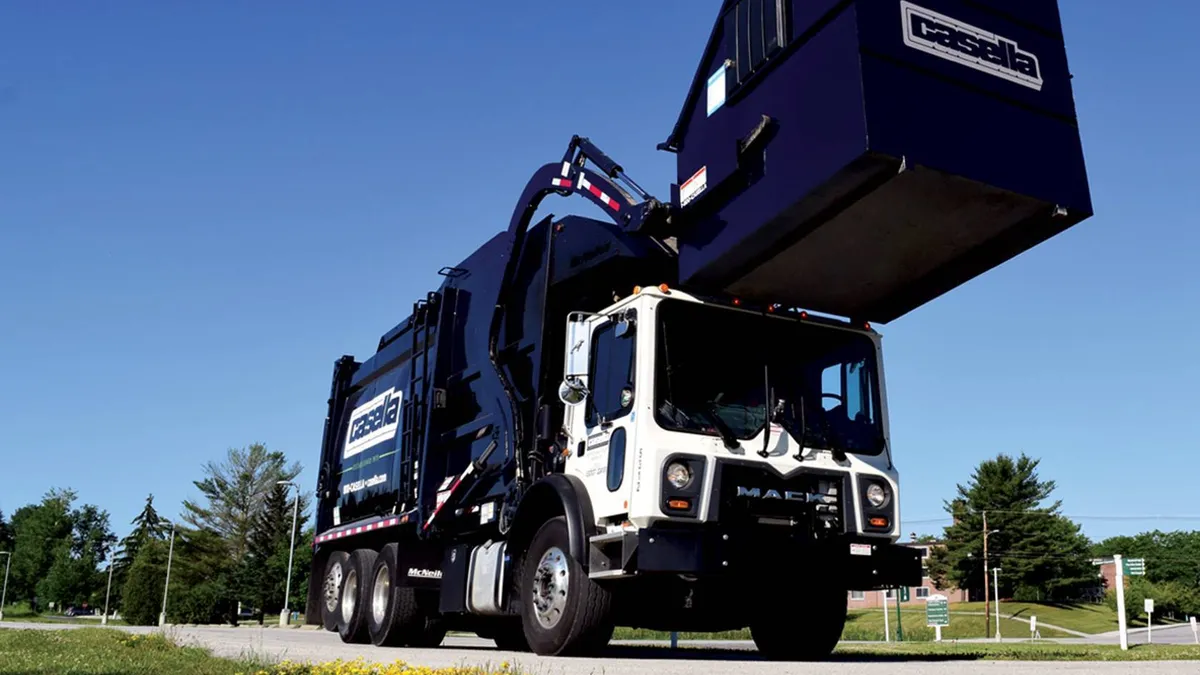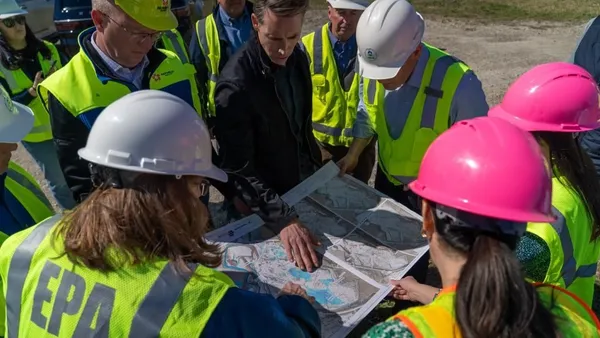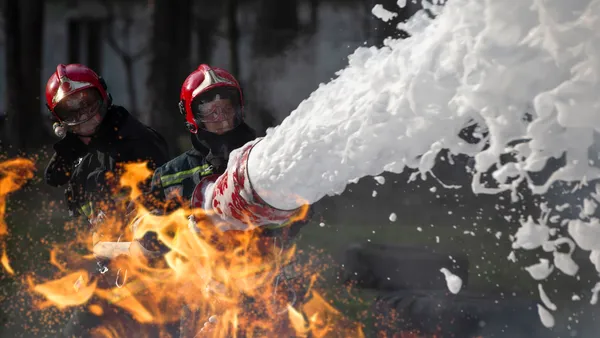UPDATE: July 31, 2019: Voters in Dalton, New Hampshire approved an emergency temporary zoning ordinance by a vote of 154-129 on Tuesday night.
According to New Hampshire Public Radio, the template ordinance includes language that would make the whole area "a district of residential agricultural use only" and preclude industrial operations without a special exception. The temporary ordinance gives residents until March 2021 to enact a permanent policy. Casella has questioned the concept of local zoning and is expected to continue exploring the possibility of a new landfill in the area.
Dive Brief:
- The small town of Dalton, New Hampshire will vote July 30 on whether to adopt emergency temporary zoning ordinances that could potentially slow construction of a proposed Casella Waste Systems landfill adjacent to Forest Lake State Park, as reported by the Union Leader.
- Casella's proposed landfill involves a 180-acre footprint, including 18 acres of wetlands. The site would expand over three phases and could have more than 30 years of disposal capacity.
- The company is searching for a new site due in part to repeated efforts to block expansion of an existing 46.5-acre landfill in nearby Bethlehem. That site, operated by subsidiary North Country Environmental Services (NCES), is projected to reach permitted capacity by 2024.
Dive Insight:
Casella's efforts to expand the Bethlehem site have been blocked multiple times in recent years, leading the company to pursue what it has described as "Plan B" for more landfill space in New Hampshire. This comes after another Casella site closed due to public and regulatory pressure in Massachusetts last year. According to a company presentation, Casella settled on the Dalton site after considering multiple options in the middle of New Hampshire with close highway access.
Executives acknowledged during a panel at WasteExpo in May that any landfill development would be an "uphill battle," but the Bethlehem situation shows no sign of quick resolution.
In addition to local opposition, the Conservation Law Foundation and Toxics Action Center are pursuing an unrelated federal lawsuit against the landfill. The environmental groups claim it has discharged leachate into the Ammonoosuc River and contaminated groundwater in violation of the Clean Water Act (CWA). A motion by NCES to stay the case was partially granted in May, pending resolution of a potentially related Supreme Court case expected to be heard this fall.
Dalton residents cite concerns that similar pollution problems could affect Forest Lake and threaten tourism.
In a prior motion to dismiss the lawsuit, Casella argued that seepage from the Bethlehem landfill is the result of a previous owner's unlined operation. It also argued that states, not the federal CWA, regulate groundwater. The parties attempted to resolve the case through mediation in January 2019, but were unable to reach a settlement.
A spokesperson for Toxics Action Center declined to comment on the pending litigation, but said Casella's move to develop a site in Dalton was directly linked to the Bethlehem stalemate.
"The newest tactic is to propose a new landfill in a neighboring town where there is no zoning," said Shaina Kasper.
Casella Vice President Joe Fusco told Waste Dive the company has developed the vast majority of its sites under local zoning regulations. Instead, he characterized the upcoming vote as a question of local governance that goes far beyond any potential landfill.
"They could be stuck with zoning regardless of whether a landfill project ever gets off the ground," he said, while also noting "in the final analysis, zoning regulations don't prevent a landfill."
According to Fusco, any potential landfill project is "so far in the future" due to the usual multi-year process of permitting requirements — perhaps even beyond the year when Casella's Bethlehem site might reach capacity. Alternatives are unclear, but likely involve either exporting to landfills in other states at a higher cost or greater reliance on those that remain.
Another landfill in New Hampshire — Waste Management's Turnkey facility in Rochester — receives more than half of its 1.4 million tons of waste from other states and is on track for its own expansion.
"How did we become the dumping ground for the Northeastern seaboard?" asked Dalton resident Jon Swan, who co-leads landfill opposition group Save Forest Lake.
Swan said he is also concerned that Casella will try to bring an outsized amount of waste from other states, and that landfill traffic will ruin the rural nature of the town.
A second group, Save Dalton NH, has emerged to lobby against the temporary zoning proposals. While the group's website doesn't explicitly state that it supports the landfill, Save Forest Lake suspects the effort is backed by Casella. (A disclaimer on the site states it receives no funding from Casella.) Similar claims of corporate influence were made about the pro-landfill "Believe in Bethlehem" citizen group last year.
Dalton is one of several New Hampshire towns without local zoning. If the July 30 vote is successful, the town will have two years to approve permanent ordinances.














